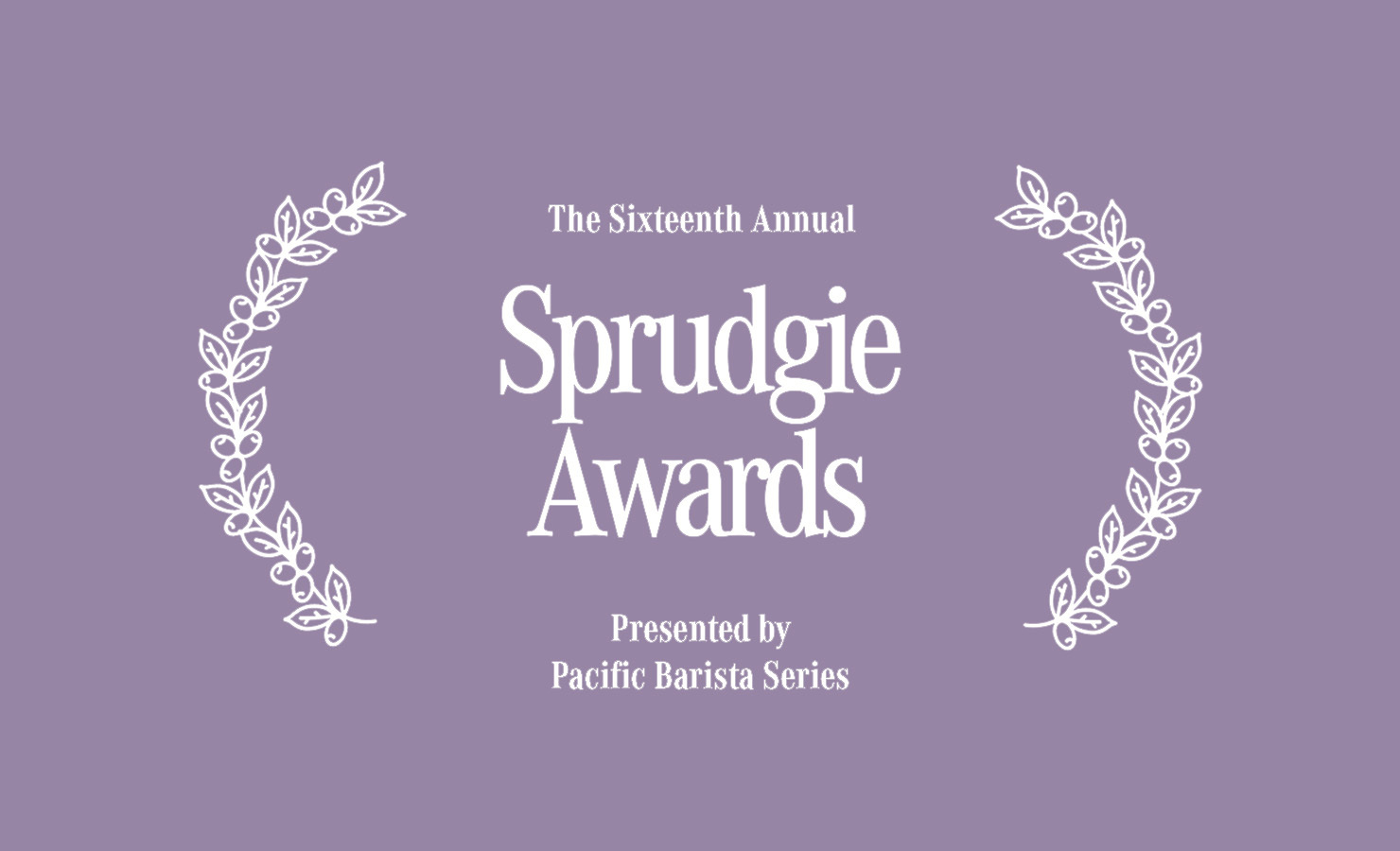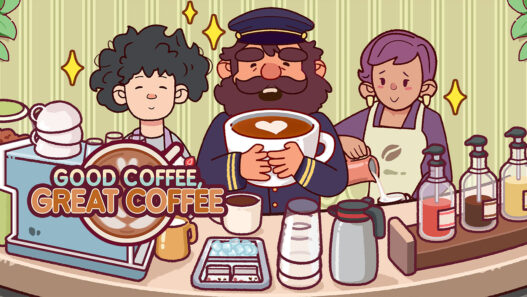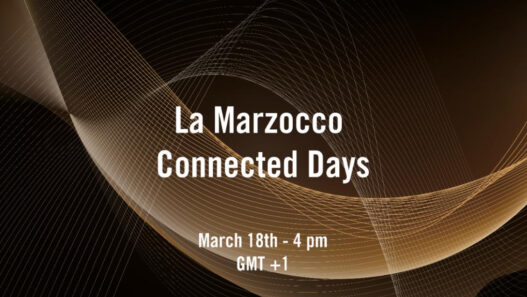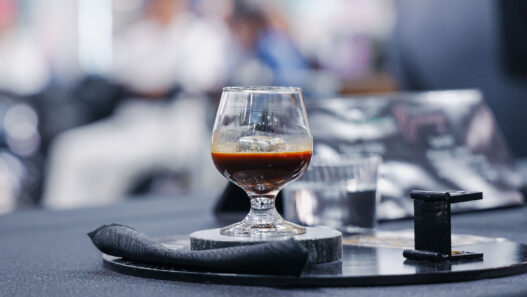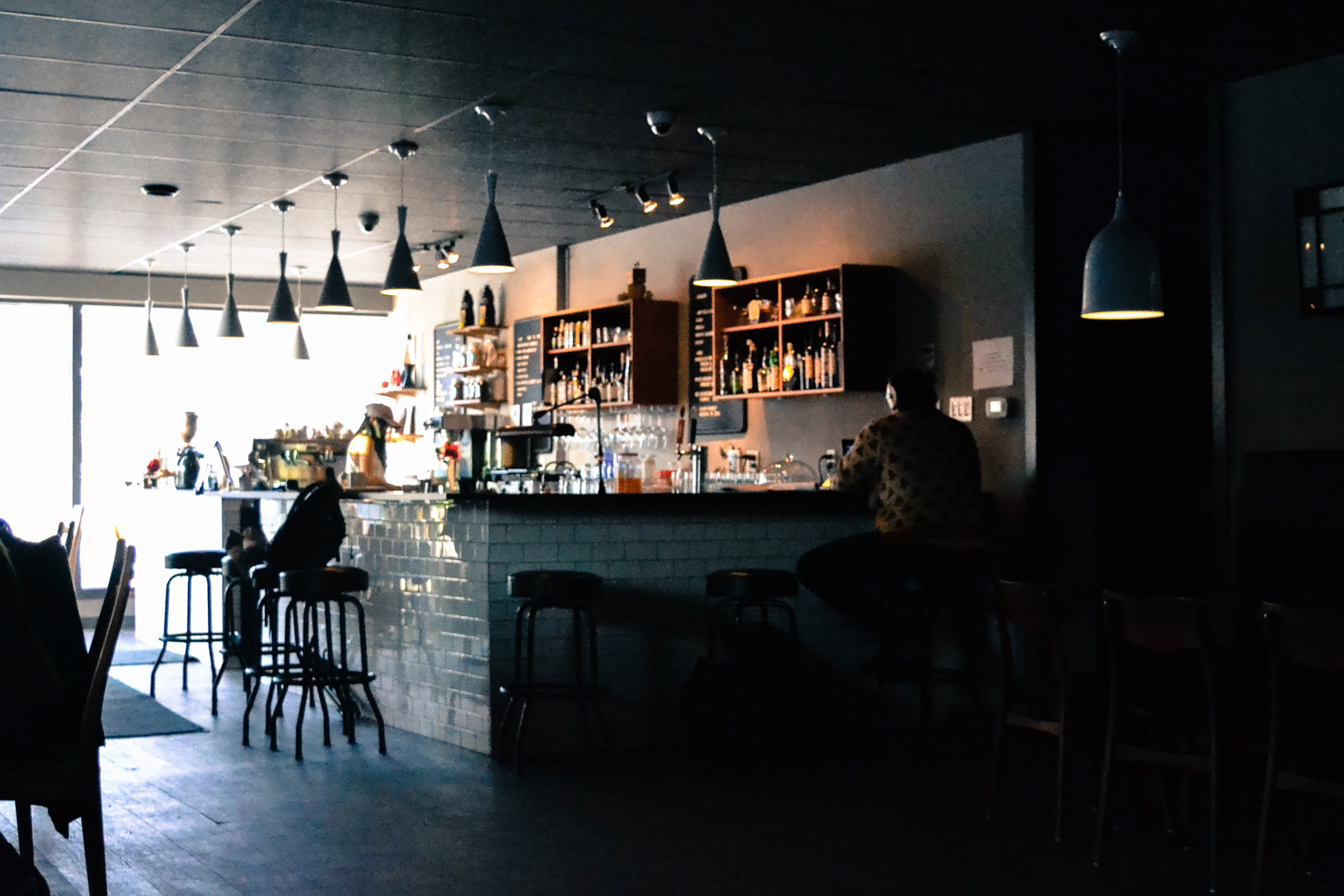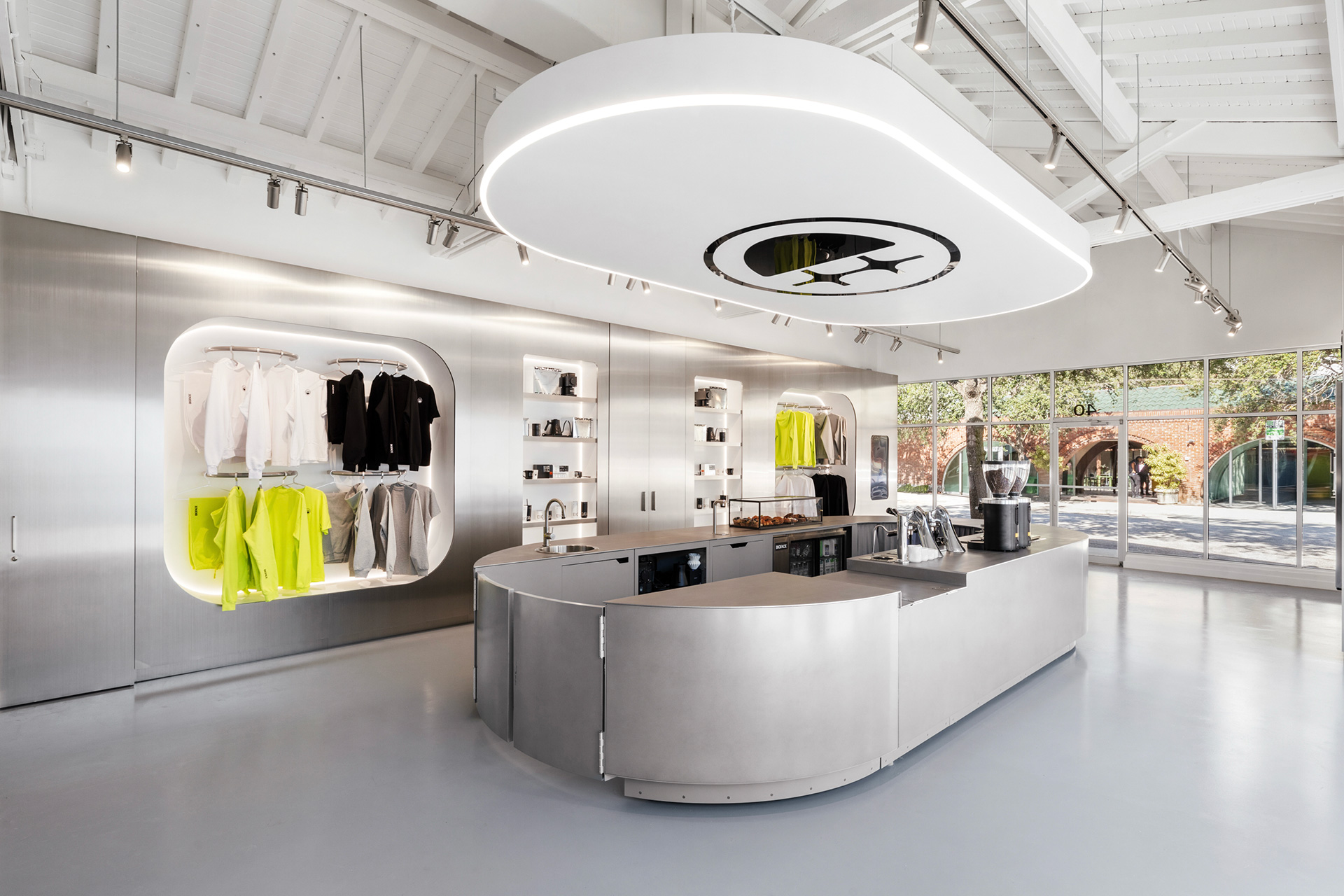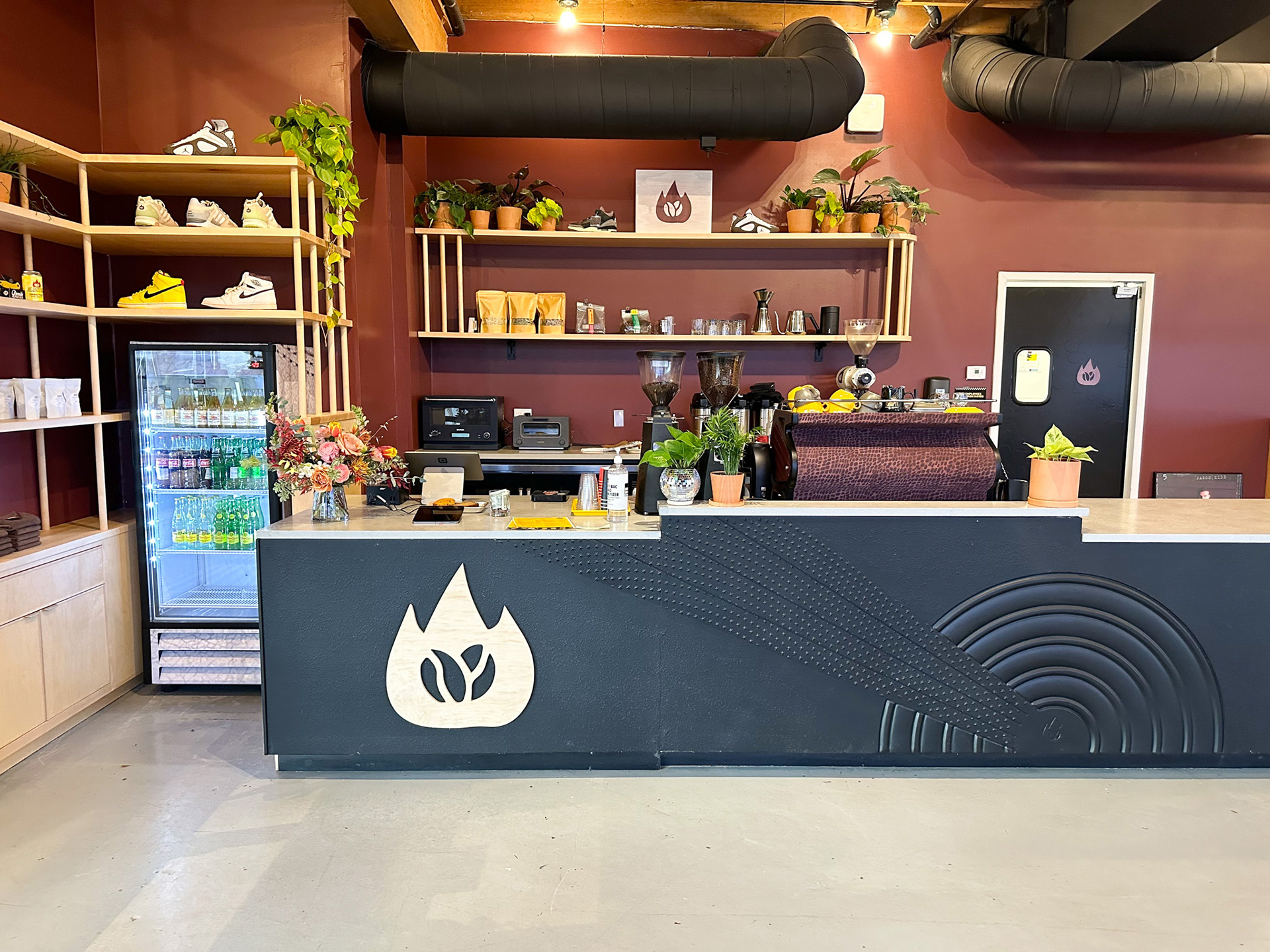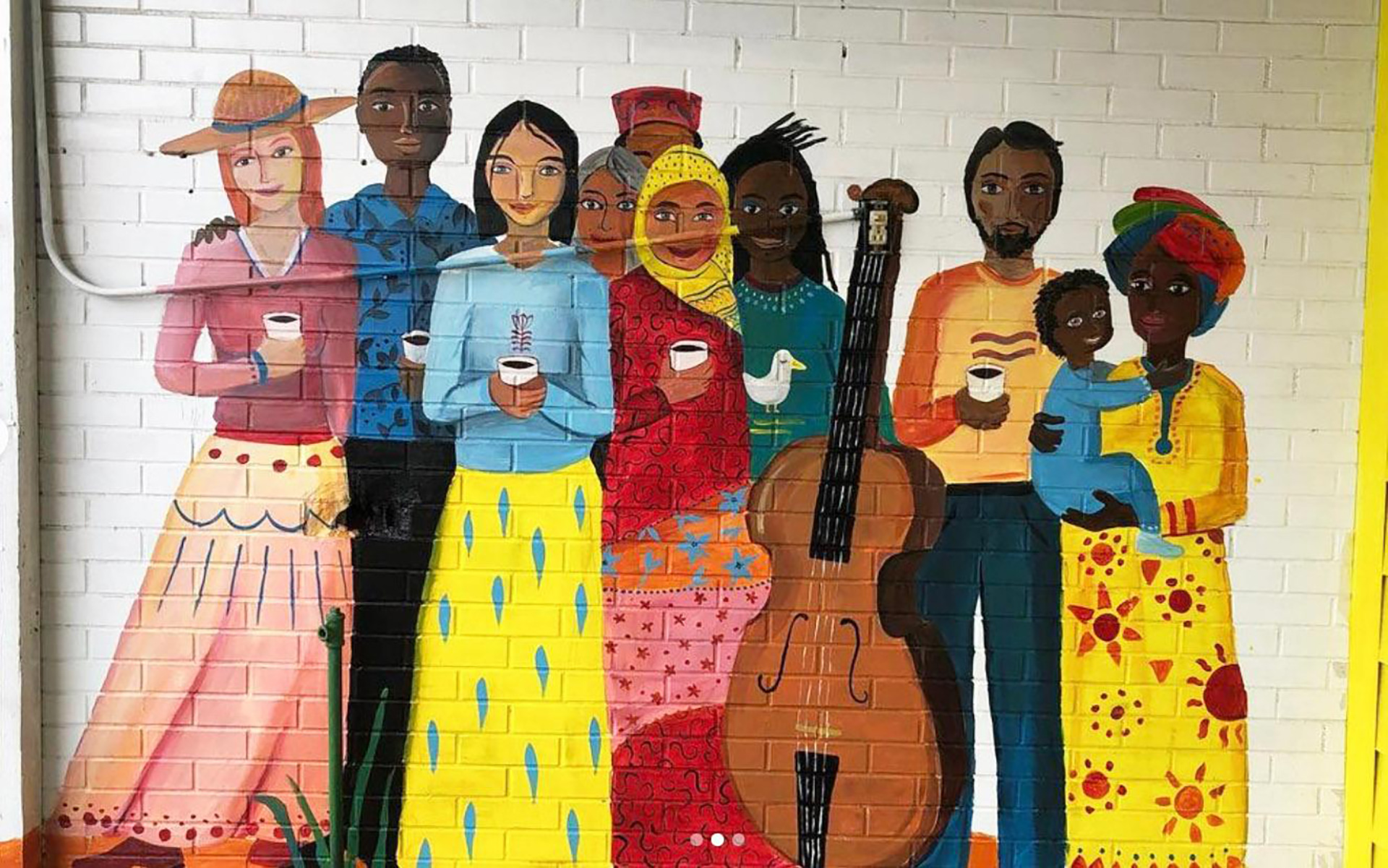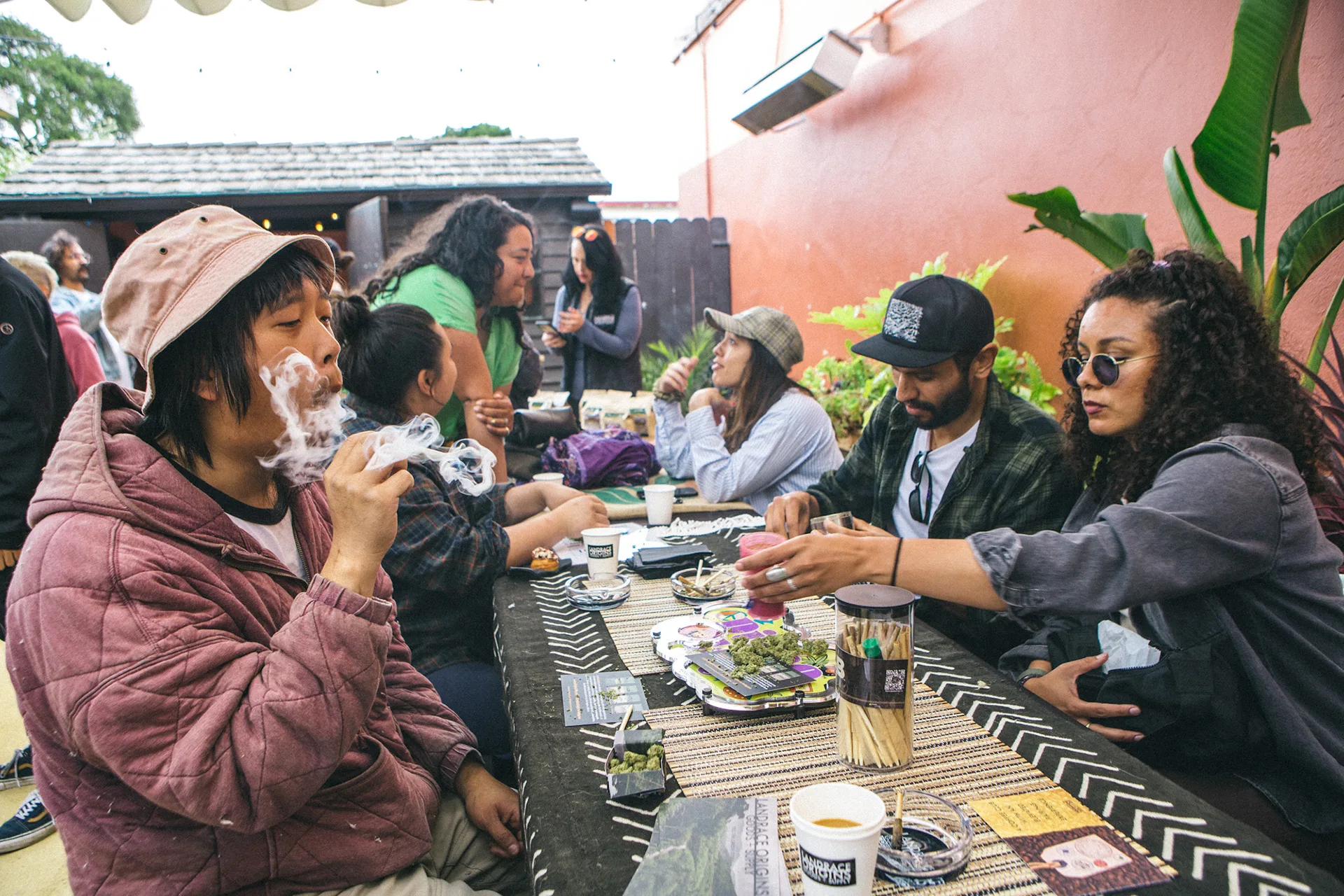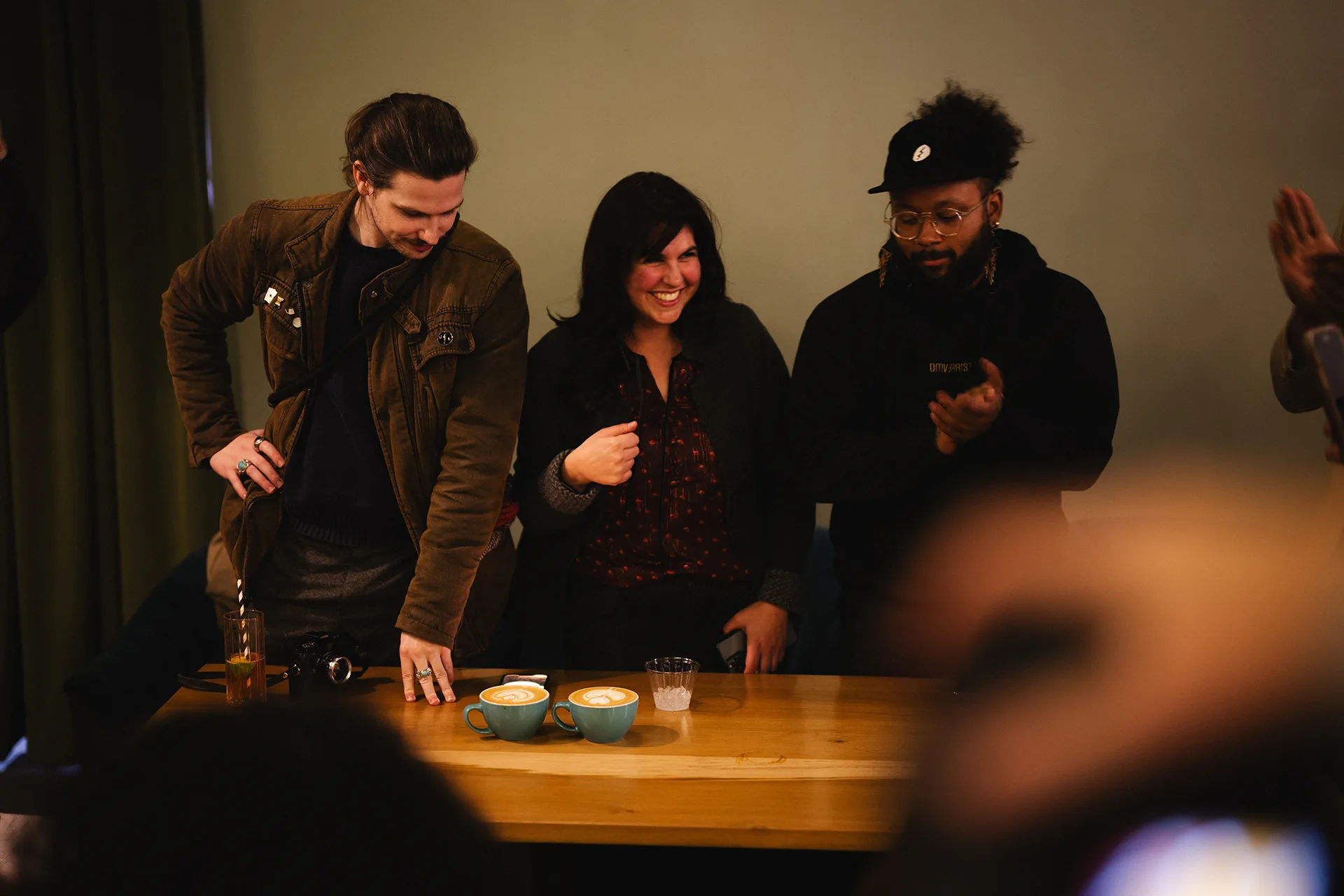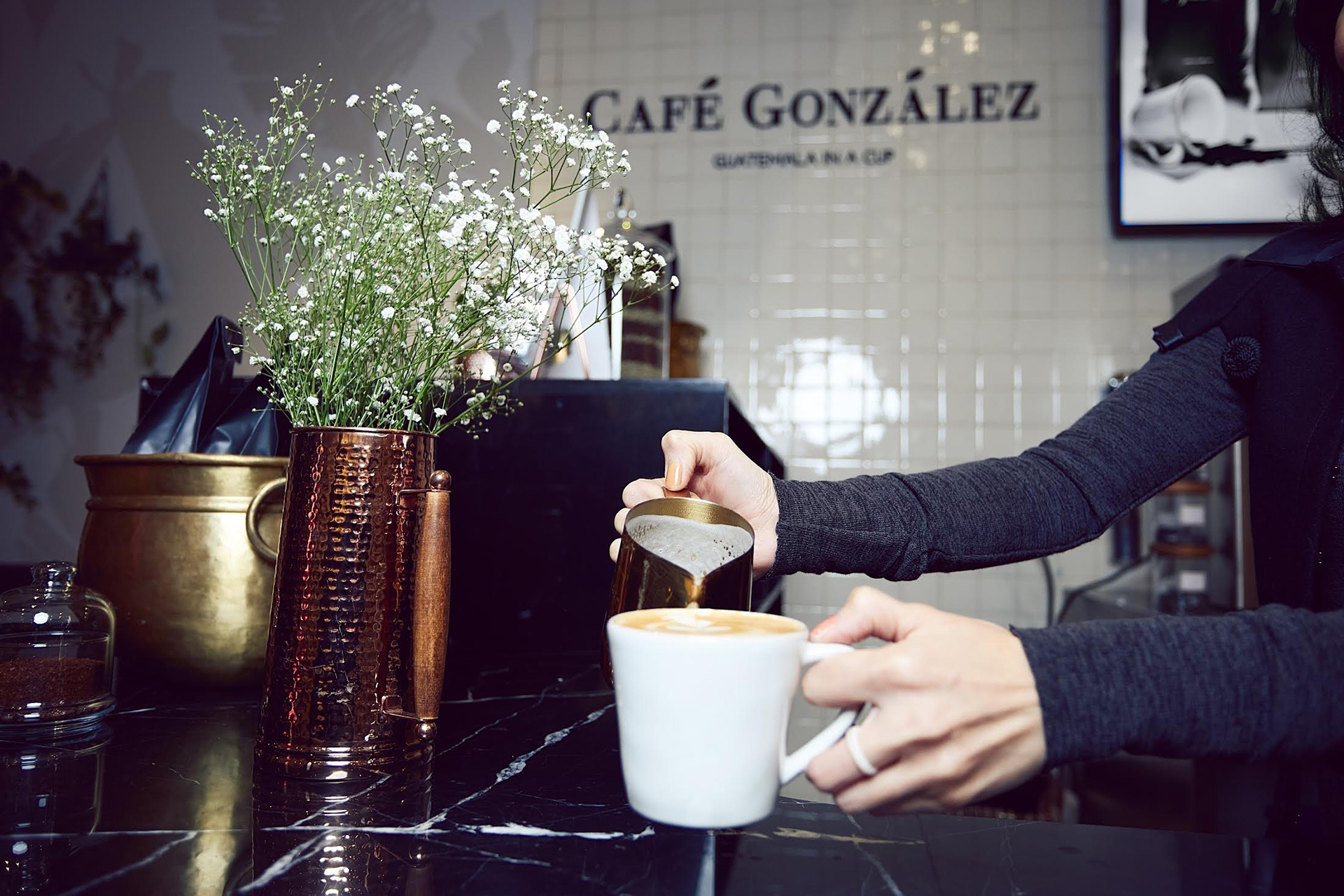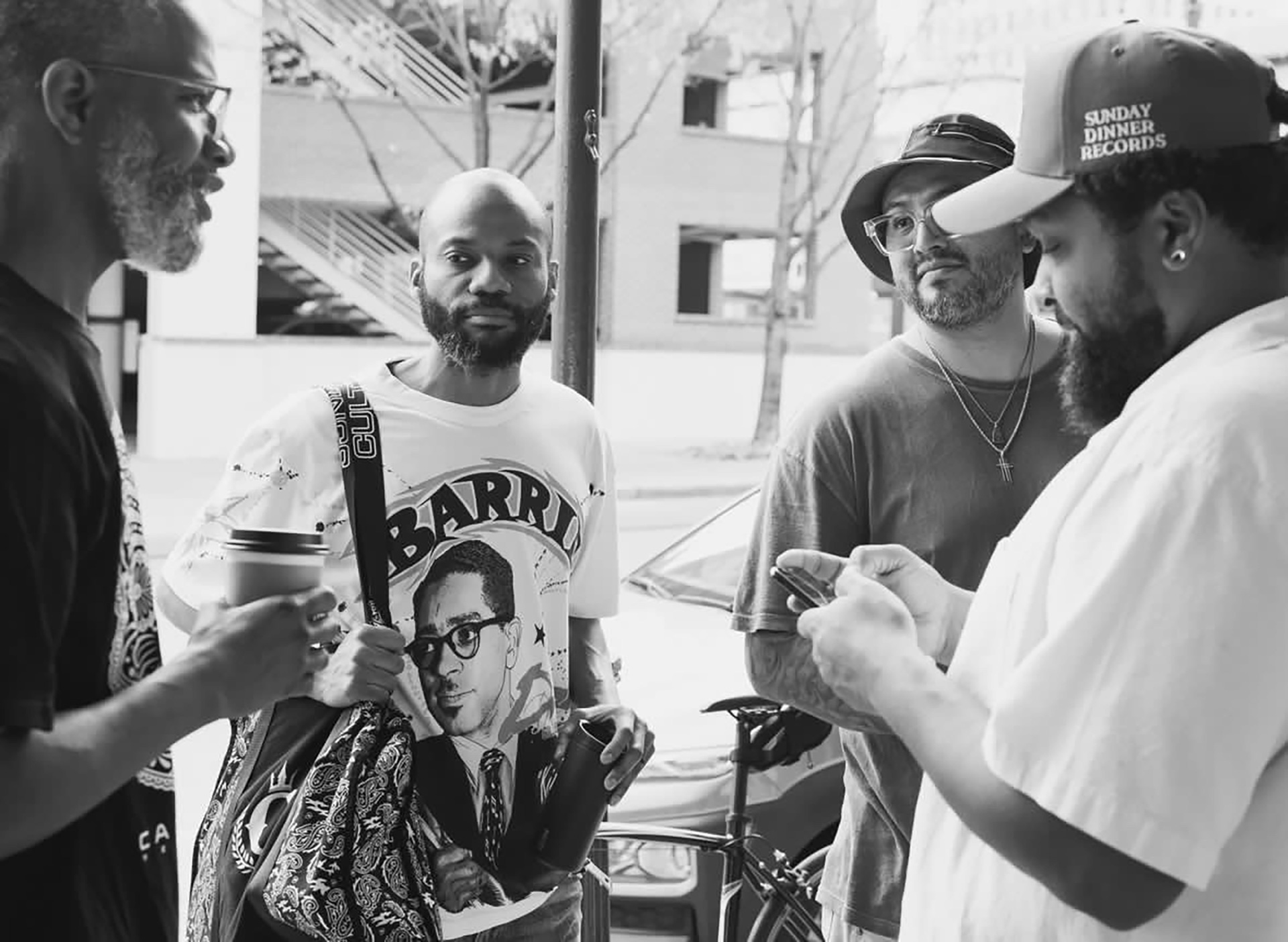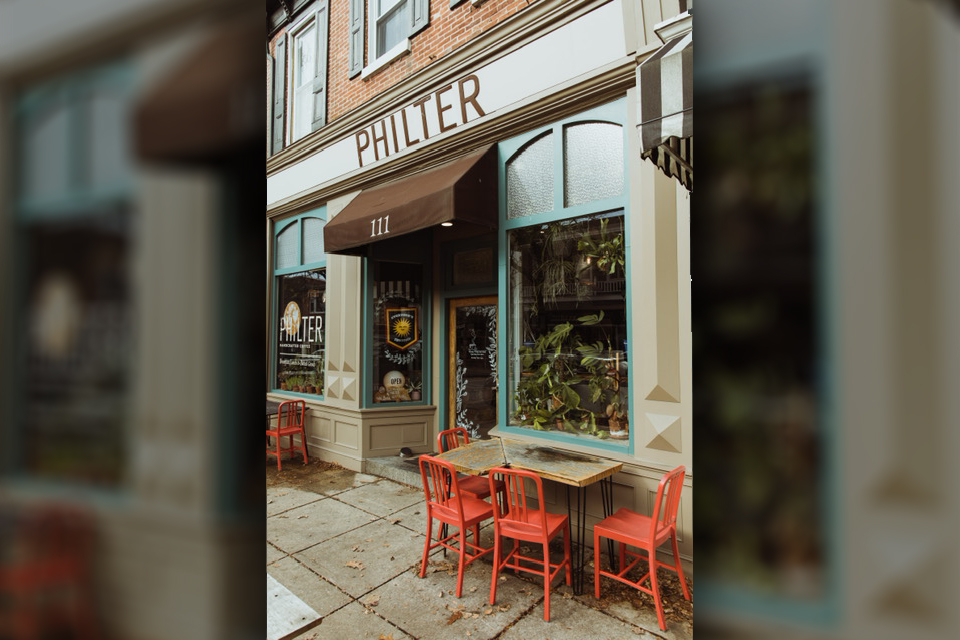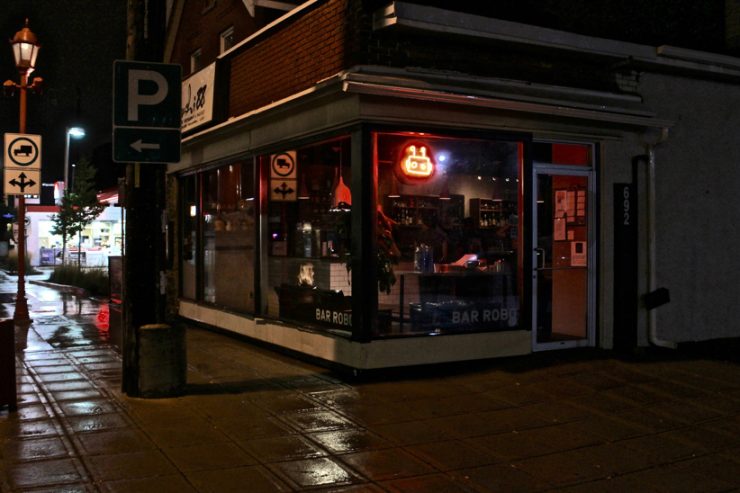 Canada, oh Canada. 2017 is shaping up to be the year of the rouge Maple Leaf. Between a Little Potato of a Prime Minister, the continued welcoming of refugees in an era when many other countries around the world are intent on shutting them out, and an alternative coffee scene worth traveling to, the giant country with a population of just over 30 million is playing all the right tunes.
Canada, oh Canada. 2017 is shaping up to be the year of the rouge Maple Leaf. Between a Little Potato of a Prime Minister, the continued welcoming of refugees in an era when many other countries around the world are intent on shutting them out, and an alternative coffee scene worth traveling to, the giant country with a population of just over 30 million is playing all the right tunes.
Ottawa, Ontario, is the capital city of Canada—as much as Vancouver, Toronto, and Montreal would love to believe otherwise. There are even some snide references by the rest of the country to Ottawa as “The City That Fun Forgot.”
Bar Robo, in Ottawa’s Chinatown, takes that moniker in stride.
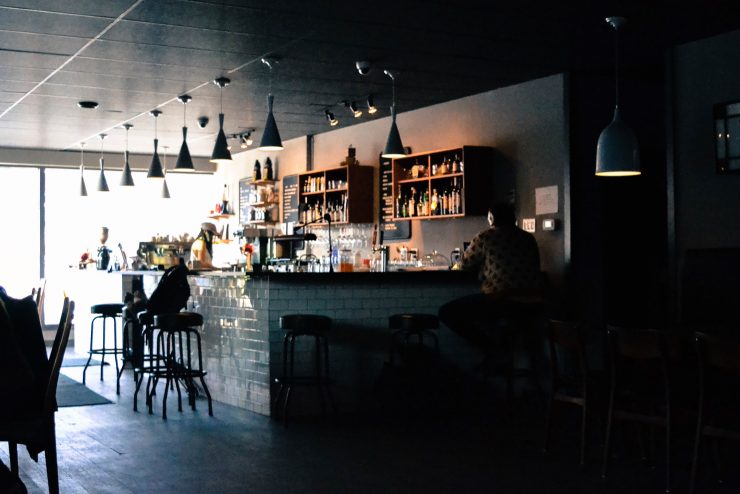 Run by partners Ali Fuentes and Scott May, the name is a simple subversion of the city’s rap as predictable, boring, pre-programmed, and robotic.
Run by partners Ali Fuentes and Scott May, the name is a simple subversion of the city’s rap as predictable, boring, pre-programmed, and robotic.
“The Bar Robo brand is quirky and unique,” says May. “It exists to showcase art and culture, and to bring together interesting people and ideas.” The space is flexible by nature, easily morphing from cafe to live music space—it’s routine for writers and visual artists, drawn to Chinatown for its affordable rents, to find themselves sitting alongside the city’s premiere musicians and scenesters.
But Bar Robo began its life with a goal of offering something much simpler—superb locally roasted coffee in a laid-back space.
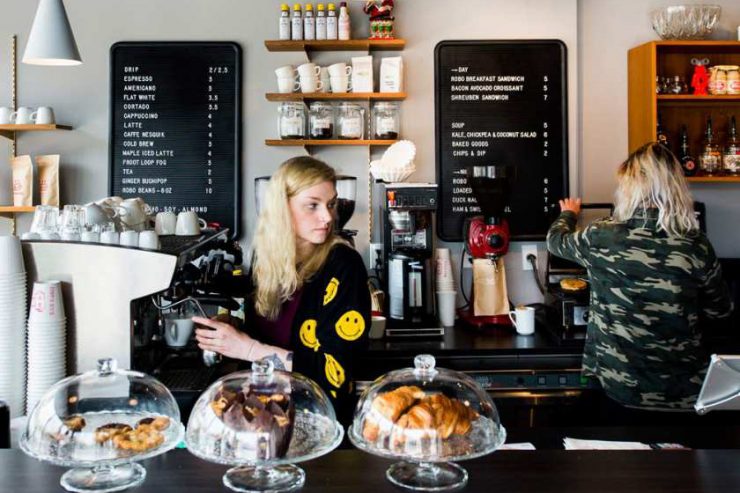 “The extraction of liquid from a properly roasted bean always reminds us of winemaking, with the timeframe compressed incredibly,” says May. “It’s art and science with an eye for small details, squeezed into a 26-second performance. Any one of many variables can change the outcome: temperature, time, grind, humidity. That we have access to fresh, local beans, a great reliable machine, and caring, motivated people feels a blessing.”
“The extraction of liquid from a properly roasted bean always reminds us of winemaking, with the timeframe compressed incredibly,” says May. “It’s art and science with an eye for small details, squeezed into a 26-second performance. Any one of many variables can change the outcome: temperature, time, grind, humidity. That we have access to fresh, local beans, a great reliable machine, and caring, motivated people feels a blessing.”
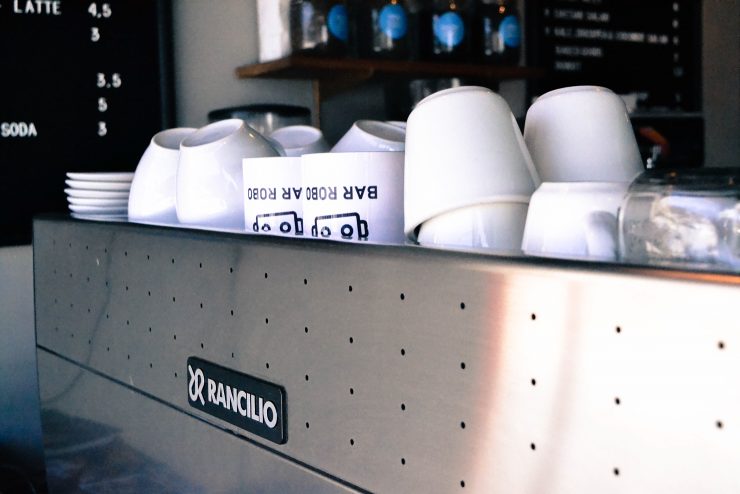 “Beans from local legend Happy Goat Coffee are roasted by German master-roaster Dr. Hans-J Langenbahn, and are prepared on a Rancilio Classe 8 machine, lovingly mixed with local organic milk,” says May. The cocktail program features bitters from local alchemist Really Horrible Enterprises.
“Beans from local legend Happy Goat Coffee are roasted by German master-roaster Dr. Hans-J Langenbahn, and are prepared on a Rancilio Classe 8 machine, lovingly mixed with local organic milk,” says May. The cocktail program features bitters from local alchemist Really Horrible Enterprises.
“Our goal was to offer incredible products in a completely attitude-free environment, with highbrow elements mixing easily with lowbrow,” says May. And so as much as it’s known for coffee and music, Bar Robo offers things from a little further left field no matter what you’re drinking. Red wine, cola, and cherry vanilla bitters combine to make a Kalimoxta cocktail, the favorite summer drink of Spanish youth. Organic Earl Grey tea steeped in steamed milk and topped with cereal makes what May calls a “Froot Loop Fog.”
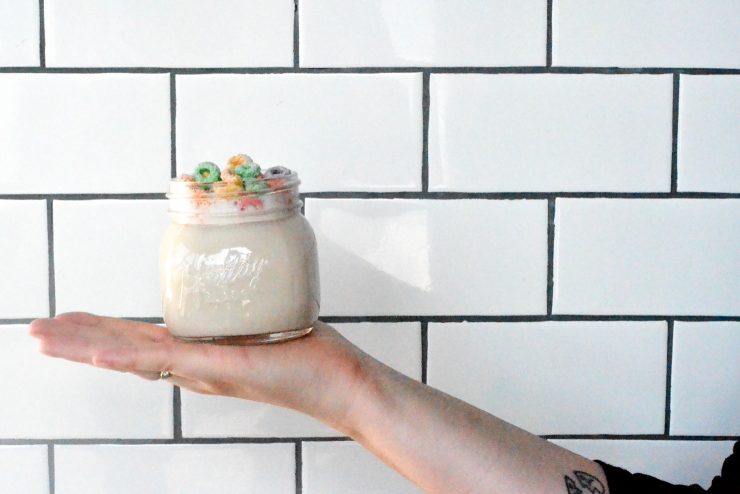 Bar Robo extends the use of bitters to its cold brew offerings, serving up delicacies like Todd’s Kilt (cold brew coffee, burnt cinnamon syrup, orange bitters, cream) and a Nesquik and cherry vanilla bitters Black Forest concoction. House-made syrups are used to prepare chai and hibiscus drinks as well.
Bar Robo extends the use of bitters to its cold brew offerings, serving up delicacies like Todd’s Kilt (cold brew coffee, burnt cinnamon syrup, orange bitters, cream) and a Nesquik and cherry vanilla bitters Black Forest concoction. House-made syrups are used to prepare chai and hibiscus drinks as well.
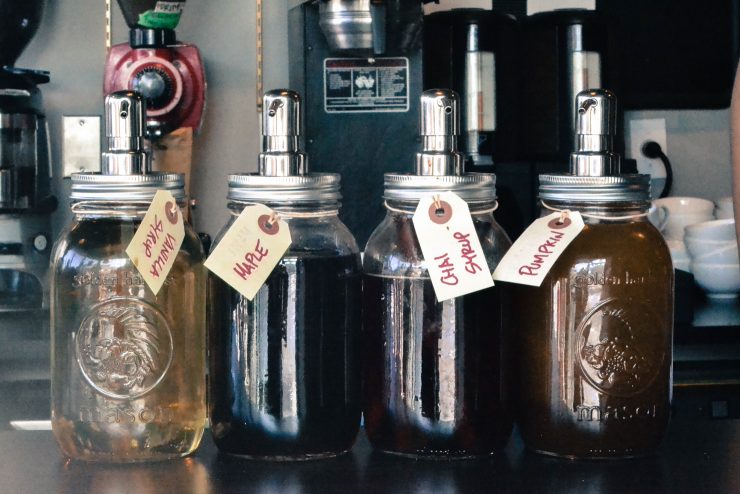 Bar Robo also has a progressive cocktail program geared to complement Ottawa’s burgeoning music scene, members of which fill its stage nightly. “Our talented mixologists are armed with an adventurous sense of experimentation, along with a vast array of delicious ingredients. We love the combination of high and low elements,” says May. “We like being playful with beverages and not taking it too seriously.” Patrons also flock for snack foods like wasabi hot dogs and house Chicago mix, a sweet and salty take on Cracker Jacks.
Bar Robo also has a progressive cocktail program geared to complement Ottawa’s burgeoning music scene, members of which fill its stage nightly. “Our talented mixologists are armed with an adventurous sense of experimentation, along with a vast array of delicious ingredients. We love the combination of high and low elements,” says May. “We like being playful with beverages and not taking it too seriously.” Patrons also flock for snack foods like wasabi hot dogs and house Chicago mix, a sweet and salty take on Cracker Jacks.
Bar Robo’s mid-century vibe is cut with bursts of grit from local artifacts—a Lisbon Grocery sign is strategically placed stage-center, which many local and touring bands have burned the house down in front of.
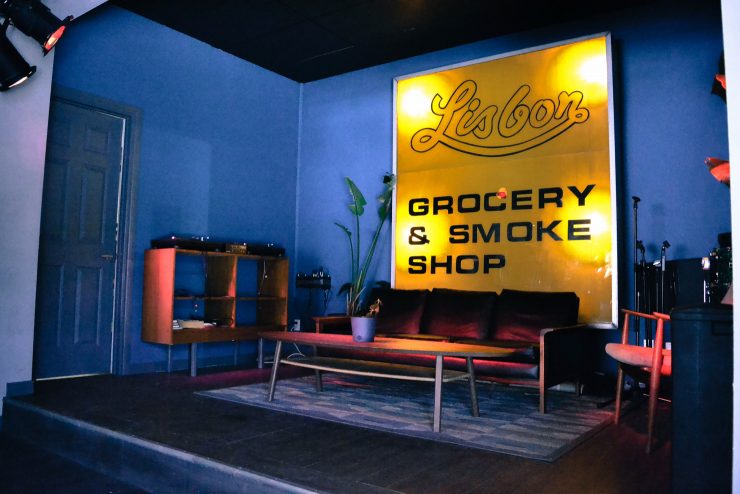 “We were fortunate to partner with Jackpine Creative Counsel early in the project. They created the name and logo, along with key design elements like the signage. It was a decision critical to our success,” says May. Industrial elements that were initially meant to be hidden, such as electrical panels, are instead showcased with plexiglass and lighting. “Liam Mooney, principal of Jackpine, was instrumental in helping the brand strike the right balance of polished and urban.”
“We were fortunate to partner with Jackpine Creative Counsel early in the project. They created the name and logo, along with key design elements like the signage. It was a decision critical to our success,” says May. Industrial elements that were initially meant to be hidden, such as electrical panels, are instead showcased with plexiglass and lighting. “Liam Mooney, principal of Jackpine, was instrumental in helping the brand strike the right balance of polished and urban.”
Still, despite its veneer, May is intent on pointing out that Bar Robo has a distinctly human heart. “If we built the best space in the world and people were not made to feel welcome or comfortable, it is a total disaster. Our staff is consistently recognized as our best asset. They embrace the weird and have great taste in music, too.”
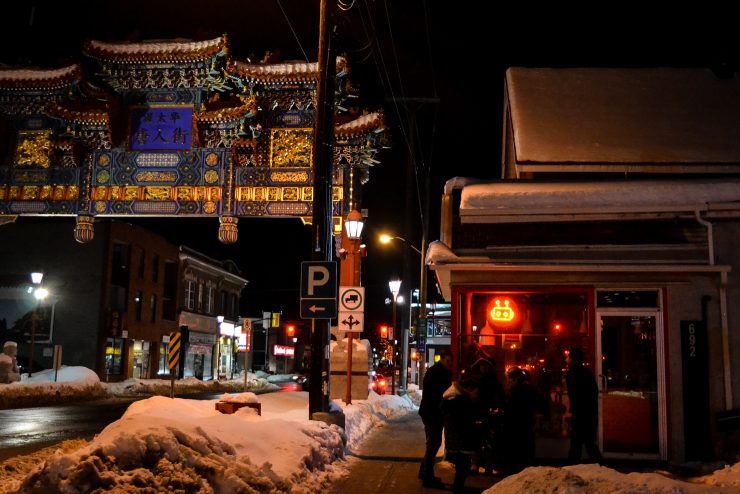 Local music promoter Matias Munoz of Ottawa Showbox, for instance, books shows between pulling shots, and the cafe is involved heavily with local music fests like Arboretum and Megaphono.
Local music promoter Matias Munoz of Ottawa Showbox, for instance, books shows between pulling shots, and the cafe is involved heavily with local music fests like Arboretum and Megaphono.
Bar Robo is insistent on providing a friendly, inclusive space for the community as part of its mandate—a prominent sign lists rules regarding discriminatory behavior and their ramifications. “We want people to enjoy great food and extraordinary coffee and cocktails, in a warm venue, and offer amazing entertainment that showcases the amazing talent pool in Ottawa,” says May. The message is clear: Canadian acceptance and tolerance, whether in a cafe, bar, or on stage, should be front and center.
Daniel Scheffler is a Sprudge staff writer at large. His work has appeared in T Magazine, Travel And Leisure, Monocle, Playboy, New York Magazine, The New York Times, and Butt. Read more Daniel Scheffler on Sprudge.
All photos courtesy of Els Durnford.







